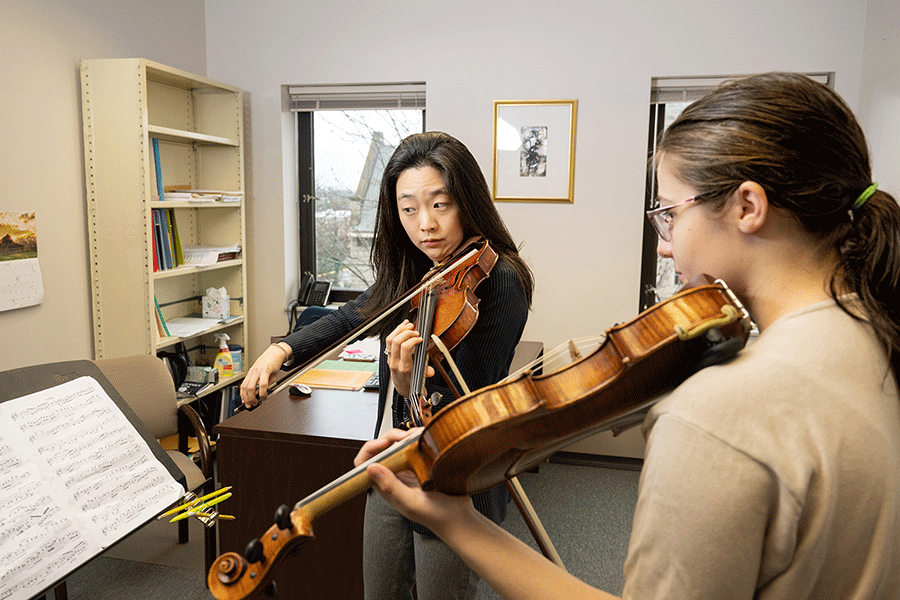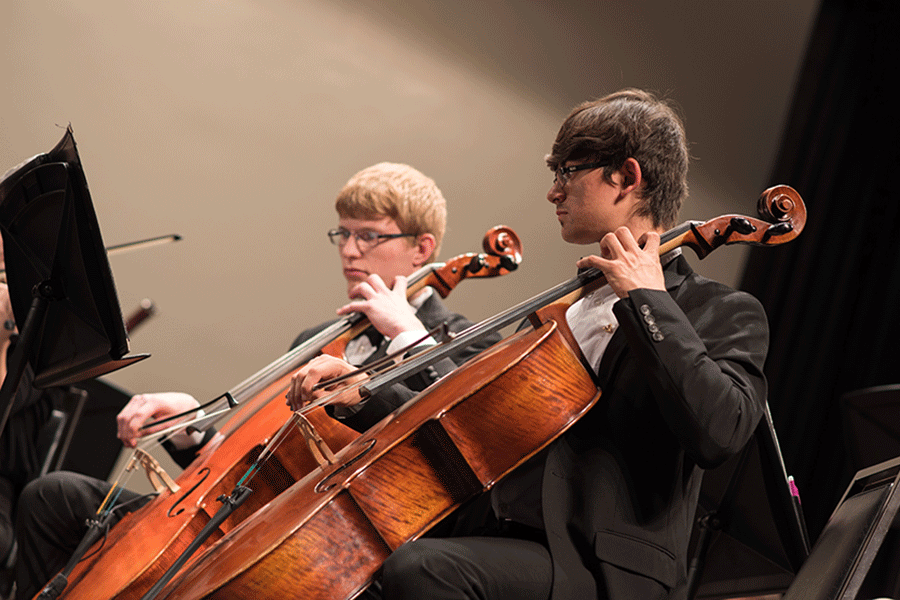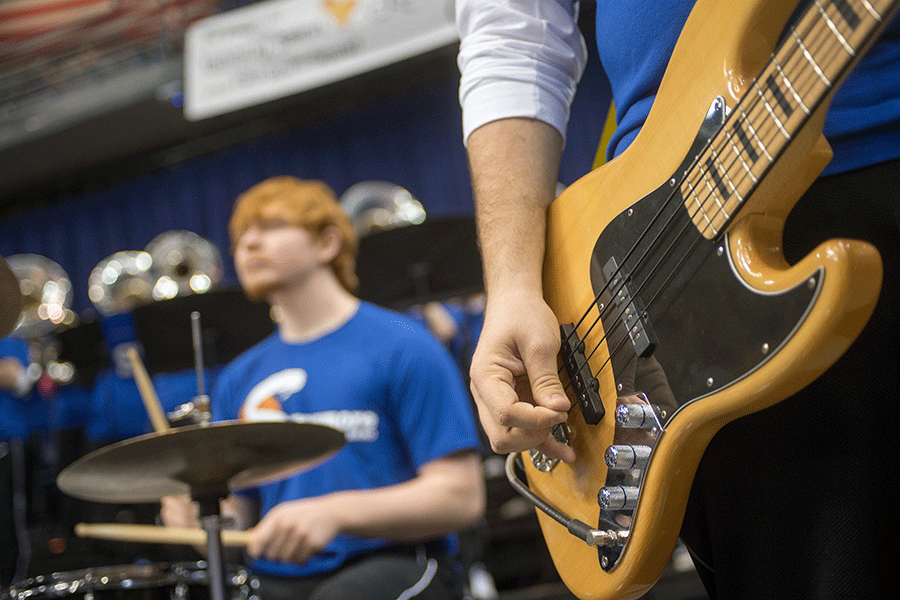Why Earn a Bachelor’s Degree in Music Performance at Indiana State?
Studying music performance at Indiana State’s School of Music equips you with the technical skills, musical understanding, and performance background necessary to pursue a professional music career. You will gain a deeper understanding of music theory and history, hone your performance skills through rigorous training, and enjoy many opportunities to perform for audiences.
Develop Your Talents
You already love music and want to continue refining your skills. Our Bachelor of Music in Music Performance is ideal if you wish to pursue a professional music performance career, establish your own studio, or further your education in graduate school with the goal of teaching music at the university level.
As a Music Performance major, you will choose a concentration in one of the following areas:
- Instrumental
- Piano
- Voice
You will also participate in performance ensembles, take private lessons in the School of Music’s designated rehearsal spaces, attend music concerts, and perform solo recitals with a music performance degree from Indiana State.
NOTE: In addition to Indiana State’s regular admission process, there is a separate admission process for a student to be admitted as a music performance major.
Learn from Our Talented Faculty
Indiana State's instructors are trained musicians and music scholars with experience as performers. They regularly perform in orchestras and music ensembles. Faculty will mentor you as you learn about music, offering private lessons and essential techniques to strengthen your musical talents.
With smaller classes, you will have the chance to work one-on-one with your instructors as they help you develop lifelong learning and practicing skills. You may also have an opportunity to perform with faculty in music ensembles and for special events.
Perform in Our Ensembles
All majors in our School of Music must participate in music ensembles for at least seven semesters of their undergraduate degree. These ensembles provide opportunities for you to work with faculty, learn new music, gain performance experience, and perform alongside your peers.
Student ensembles and combos include brass, jazz, piano, percussion, string, and wind, plus several chorale groups, a women’s concert choir, a musical theater/opera workshop, and the University Symphony Orchestra.
Music majors are required to attend a specified number of concerts, recitals, and events in the annual Contemporary Music Festival, a three-day event held on Indiana State’s campus. Indiana State students perform alongside faculty and visiting guests including the Indianapolis Chamber Orchestra.
What You'll Learn in the Music Performance Program
The Bachelor of Music [BM] in music performance provides a solid foundation in all areas of music, but especially in your chosen concentration. Our program features music performance practicums, music theory, music history and literature, piano, performance management, music technology, scoring, conducting, and recitals.
You will develop a theoretical and practical capacity to perform music as a solo artist or in group ensembles. You can complete our music performance bachelor’s degree in four years of full-time study
The music performance program concludes with a senior recital. This is a performance of a whole or half recital. As a music performance major, you will perform a recital showcasing your developed talents from the program.
In addition to your general music classes, you will also declare a concentration for your BM in music performance.
Music Performance Concentrations
Enhance your instrumental talents in brass, percussion, strings, and woodwind instruments. Courses highlight scoring, musicianship, music theory, music skills, and performance. Students must participate in an instrumental ensemble for at least seven semesters of their undergraduate program, including the University Symphony Orchestra and the Wind Orchestra.
Learn new piano performance techniques and piano history with a concentration that focuses on piano performances, accompaniment, and other skills. Courses highlight musicianship, music theory, music skills, piano literature and pedagogy, and piano performance. Piano students are typically members of music ensembles in the School of Music, including Masterworks Chorale, Piano Ensemble, String Ensembles, University Chorale, University Symphony Orchestra, Wind Symphony, and Wind Orchestra.
Enhance your vocal talents with a concentration that focuses on choral music, performance, repertoire, and diction for singing. Courses highlight musicianship, music theory, music skills, vocal literature and pedagogy, and vocal performance. Voice students are typically members of music ensembles in the School of Music, including Masterworks Chorale, University Chorale, and Women’s Concert Choir.

Transfer Credit
Indiana State University accepts credit from regionally accredited colleges and universities within the United States, and from selected schools located outside the United States. Credit also may be granted for military training and experience. Previously earned college credit can be applied toward completion of the program per Indiana State's transfer guidelines.
Transfer GuidelinesCareer Possibilities for Music Performance Majors
Take your musical talents to new levels with a bachelor’s degree in music performance. Your degree from Indiana State will prepare you for a successful career as a performer, music scholar, orchestra conductor, and for related careers.
Our graduates perform in music ensembles throughout the world. They lend their talents to symphony orchestras, chorus groups, musical theater productions, jazz ensembles, and other musical groups. Our students are also prepared for graduate studies to become university professors.
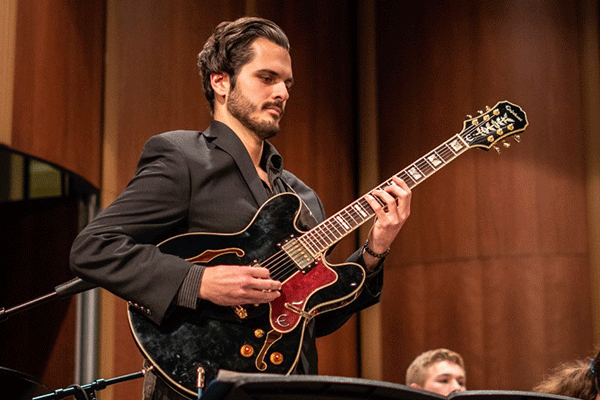
A Passion for Jazz
Music performance alumnus Antonio Duran, ’20, enhanced his passion for jazz music throughout his education at Indiana State. Influenced by his professors, he learned more about guitar playing, jazz pedagogy, and how to entertain audiences.
Learn what makes Antonio Duran a performer at heart.Accreditation
Indiana State University is accredited by the Higher Learning Commission.
In addition, the School of Music is an accredited institutional member of the National Association of Schools of Music. The Music Education program holds accreditation with the Council for the Accreditation of Educator Preparation (CAEP), and the Music Business program is affiliated with NAMM – International Music Products Association.
Related Programs
-
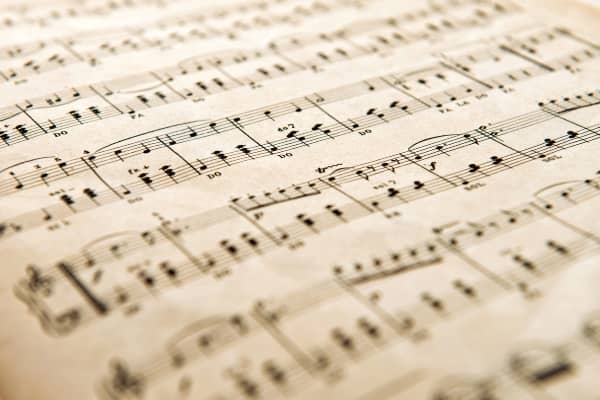
Music Composition (BM)
Bachelor's
-
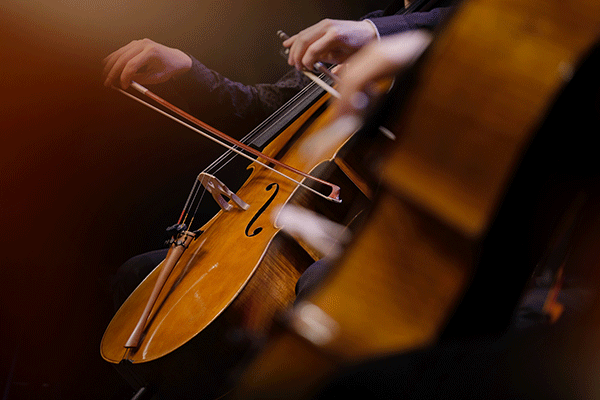
Music Education (BME)
Bachelor's
-
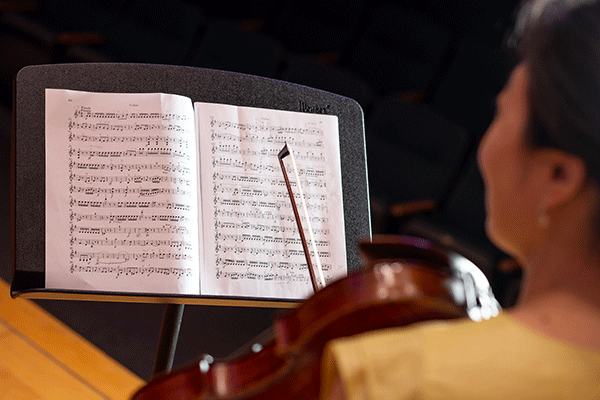
Music Liberal Arts (BA)
Bachelor's
